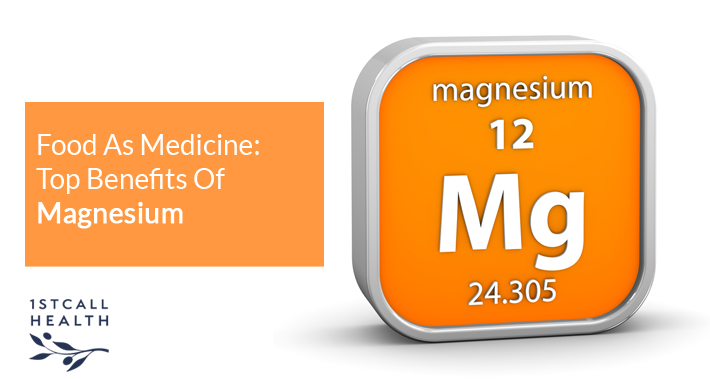
Magnesium is an essential mineral with many benefits for your body.
It’s one of many vitamins and minerals that your body needs to function at its best and a great natural anxiety solution.
Here at 1stCallHealth, we’re a primary care clinic geared toward helping you stay healthy.
If you feel like you’re not getting enough magnesium, or any other essential nutrients, we can help, and for an accessible, affordable price.
Book your appointment with 1stCallHealth today to start on the path to a healthier you today.
Or, read on to find out more about the benefits of magnesium.
What Is Magnesium?
Magnesium is an essential mineral that your body needs to function properly.
It’s an important part of many processes in your body that range from producing energy to building proteins.
If you remember chemistry class, it’s one of the basic elements, with an atomic number of 12.
Dietary Sources Of Magnesium
You can find magnesium in many different kinds of foods.
Food sources with high amounts of magnesium include:
- Peanuts
- Soybeans
- Almonds
- Cashews
- Pumpkin seeds
- Chia seeds
- Spinach
- Rolled oats
- Whole grains
- Leafy green vegetables
You can also find smaller amounts of magnesium in meat and fish.
Even though it’s found in a variety of foods, many people don’t get enough magnesium.
This is where it can be helpful to look into increasing your magnesium intake, which your primary care team at 1stCallHealth can support.
Make sure to speak with your primary care provider before taking any supplements.
What Does Magnesium Deficiency Look Like?
Lots of people don’t get enough magnesium, but it’s rare to actually be magnesium deficient.
What does it look like when you’re deficient?
Well, the main symptoms of magnesium deficiency include:
- Poor mental health
- Muscle twitches and cramps
- Osteoporosis
- High blood pressure
- Fatigue and muscle weakness
- Worsening asthma symptoms
- Irregular heartbeat
- Delirium
It’s also worth mentioning that low levels of magnesium are linked to many health conditions including type 2 diabetes, heart disease, and Alzheimer’s disease.
Can You Overdose On Magnesium?
There is such a thing as too much magnesium.
Having more than 350mg per day of magnesium can put you at risk for digestive side effects like nausea or abdominal cramping.
You can develop something called hypermagnesemia, which is when you have too much magnesium in your blood.
This almost never happens through diet alone though.
Hypermagnesemia is most common in people who supplement with large amounts of magnesium over a long period of time.
This is why it’s important to seek medical advice before starting any supplements.
You can also get hypermagnesemia if you have kidney disease, but that’s much rarer.
Top 5 Benefits Of Magnesium
We mentioned earlier that magnesium is involved in many different processes that are integral to your body.
About sixty of your body’s magnesium is in your bones, while the remainder can be found in your muscles, soft tissues, and fluids like blood.
Every part of your body needs it in order to function.
Now, let’s find out more about the top five ways that magnesium helps your body work.

1. Every Cell In Your Body Needs It
Every single cell in your body needs magnesium in order to function.
This is because it acts as a cofactor, or helper molecule, in your body’s ongoing biochemical reactions completed by your enzymes.
There are more than 600 reactions in your body that magnesium is a part of, including:
- Protein formation
- Energy creation
- Muscle movements
- Gene maintenance
- Nervous system regulation
2. It Can Improve Your Mental Health
Magnesium is linked to your mental health because of its role in regulating your brain function and mood.
Low levels have been linked to depression.
But, the good news is that supplementing magnesium has been shown to reduce your risk for depression and even anxiety.
3. It’s Good For Your Heart
Magnesium is good for your heart, keeping it healthy and strong.
Magnesium supplements can lower high blood pressure levels, which is considered to be a risk factor for heart disease and stroke.
It also appears that they improved other risk factors for heart disease including triglyceride, LDL cholesterol, HDL cholesterol, and systolic blood pressure levels.
The effects are more beneficial if you already had a magnesium deficiency before starting to supplement.
More research is needed before it can be more definitive, but right now it’s looking really good for your heart.
4. It’s Good For Your Bones
Sixty percent of the magnesium in your body is found in your bones.
It’s no surprise that magnesium is important for maintaining your bone health and protection against bone loss.
There is an association with low levels of magnesium and a higher risk for osteoporosis.
So, make sure that you’re getting enough to protect your bones, especially as you grow older.
5. It Can Help You Sleep Better
Finally, magnesium can help you sleep better.
Many supplements are often marketed as a natural sleep remedy for those who experience insomnia.
This is not surprising because magnesium regulates several neurotransmitters involved in sleep, specifically gamma aminobutyric acid (GABA).
It’s been shown to help reduce the amount of time it takes for you to fall asleep and the quality of your sleep.
Book Your Appointment With 1stCallHealth Today
Magnesium is a powerhouse mineral that helps your body to function.
It can be found in a wide variety of food sources, but you might not be getting enough.
Supplements can be a good solution to ensure you’re getting just the right amount.
But, it’s a best practice to work with a healthcare professional who can point you in the direction of the supplement that will work for you.
If you’re worried that you’re not getting enough magnesium, become a member of 1stCallHealth.
Our experienced team of nurse practitioners will evaluate your symptoms and get you back on track to feeling better.
Book your appointment with 1stCallHealth today.
1stCallHEALTH
1331 H St NW Ste 200,
Washington, DC 20005
(202) 590-0009
– https://goo.gl/maps/MVhjkz2jqynWpsgo6
1stCallHEALTH provides affordable access to primary care services. We believe that everyone deserves affordable, high quality primary care. Our vision is to challenge the status quo, focus on the individual, and empower personal control to change the way we think about healthcare.




